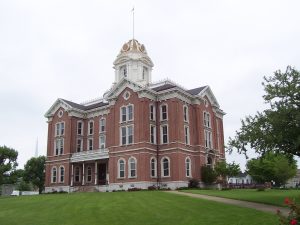The Rule of Law is not the stuff of artificial intelligence and differential equations. It is not about the James Webb telescope that may help disclose where and when we came from. It is not about a cure for COVID. No, the Rule of Law is far more complex, and perplexing, than any of those things. However, if properly applied, the Rule of Law can help us understand and deal with these challenges and others.
Law sounds simple. Treat others the way you wish to be treated. Respect the person and property of others. These principles are easy to say but thousands of years of human history prove they are extremely difficult to apply. Our Declaration of Independence sets out the basics of our legal system, “…[A]ll men are created equal,” and all men have the right to life, liberty and the pursuit of happiness. When Thomas Jefferson penned those simple ideals he owned slaves, and had children he did not acknowledge by at least one of those slaves. Also, women could not vote and the property rights of Native Americans were not even an afterthought. Were Jefferson and the rest of the 1776ers evil? No, they were human. We call these concepts ideals because the realities are nearly impossible to achieve. That is why we need the Rule of Law, to encourage us to try.
Our Constitution sets forth America’s aspiration to form a more perfect union. Surely none of our Founders was naïve enough to believe perfect self-government was achievable. That is not why goals are set. Just as it is the struggle of life that can separate us from all other animals and, perhaps from some humans, it is government’s role to help us strive for perfection. We have often fallen short and we always will. But just as we are fighting the war on COVID in fits and starts we can face our past failures in how we have behaved and strive to be better. There will never be a cure for our occasional imperfect collective missteps. That is why we need to acknowledge our past failures and seek to avoid future sins. We should do this together.
In her book, On the Courthouse Lawn, Sherrilyn Ifill points out the irony of many lynchings being carried out by large numbers of a community right at the seat of justice, the county courthouse. Also, our courthouses are often the site where the legal system has been used to deny human rights, such as through the separation of Native American families and establishment of some guardianships that led to murder.
Community recognition of these subversions of the Rule of Law is important. Monuments that show society admits its wrongs, even if long past, can help people heal and avoid new injustices.




